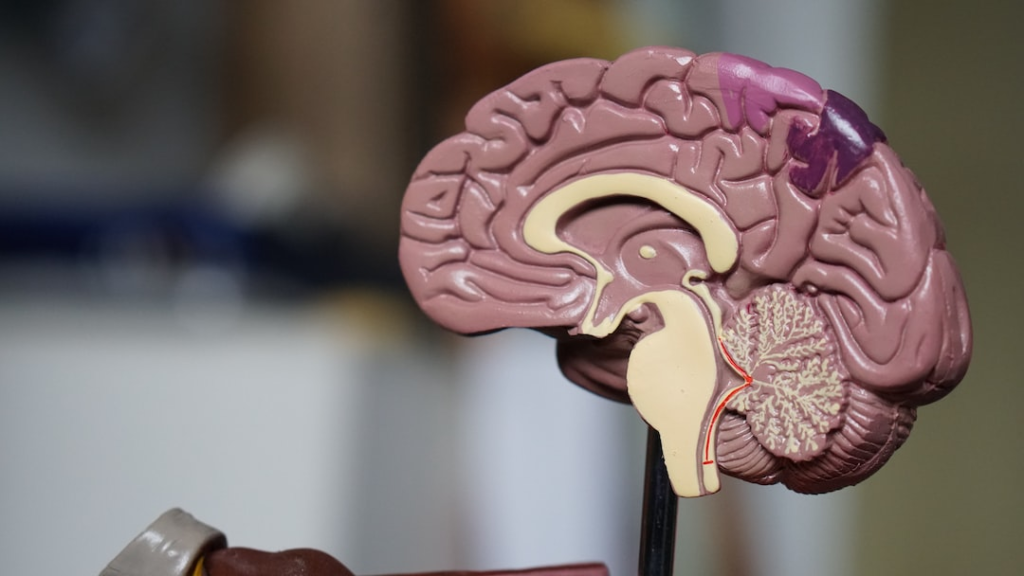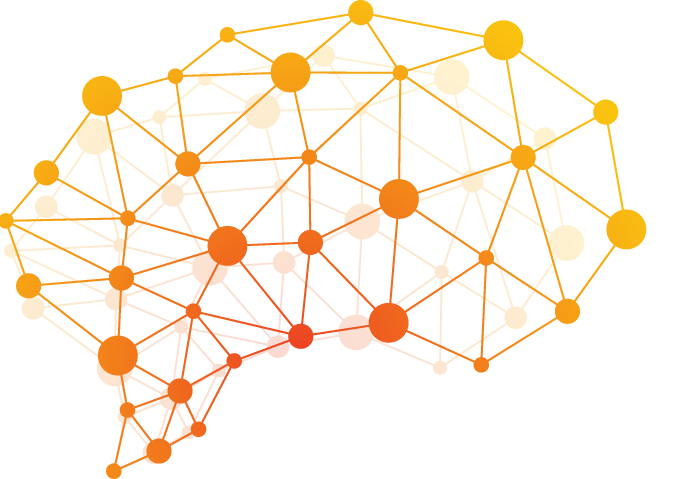Discover the potential impact of vitamins and lifestyle choices on brain health, including the role of B vitamins, brain health supplements, omega-3 fatty acids, vitamin D, vitamin B12, and lifestyle factors such as diet, exercise, and social outings.

Overview of Vitamins for Brain Health
The significance of vitamins in maintaining brain health has captured increasing attention due to their potential impact on preventing cognitive decline. Vitamins play a crucial role in supporting brain health and cognitive function, making them essential for overall well-being. For instance, B vitamins are known for their role in increasing energy, reducing inflammation, and supporting brain health. This is particularly important as people age, and the risk of neurological diseases increases. It’s vital to understand the specific vitamins that are essential for optimal cognitive function.
Research has shown that B vitamins, including B6, B12, and folic acid, are instrumental in supporting brain health and maintaining cognitive function. For example, vitamin B12 is necessary for the formation of red blood cells and DNA synthesis, which are vital for overall brain function and cognitive processes. Foods rich in B vitamins, such as eggs, yogurt, legumes, salmon, sunflower seeds, and leafy greens, are integral components of a brain-boosting diet. Additionally, supplements may be beneficial in cases where dietary intake of B vitamins is not perfect, ensuring that individuals receive the necessary nutrients to support their brain health.
Additionally, maintaining a well-balanced diet is essential for preventing cognitive decline and supporting overall brain health. The risk of neurological diseases increases with age, making it crucial to prioritize the consumption of brain-boosting nutrients to support cognitive function and vitality.
The Importance of B Vitamins in Protecting Aging Brains
B vitamins are crucial for protecting aging brains and maintaining cognitive function. For instance, B6, B12, and folic acid play an essential role in brain health by supporting various bodily functions. B vitamins are involved in increasing energy levels, reducing inflammation, breaking down medications, and supporting brain health. This is particularly significant as individuals age and seek to preserve their cognitive vitality.
Moreover, these essential vitamins are readily available in a variety of foods, making it easy to incorporate them into a well-balanced diet. For example, eggs, yogurt, legumes, salmon, sunflower seeds, and leafy greens are rich sources of B vitamins, making it convenient for individuals to obtain these nutrients through their daily meals. Additionally, B vitamin supplements can be beneficial for individuals with dietary restrictions or those who may have difficulty obtaining adequate levels of these vitamins from their diet due to various reasons, thereby providing additional support for brain health and cognitive function.
In addition to supporting brain health, B vitamins play a crucial role in overall well-being and vitality. They are essential for various physiological processes, emphasizing the comprehensive influence of these vitamins on the body’s overall health. Therefore, integrating B vitamins into one’s diet and considering supplements when necessary can contribute to maintaining optimal brain health and supporting cognitive function as individuals age.
Furthermore, the potential benefits of B vitamin supplements in cases where the diet is not perfect highlight the importance of personalized approaches to brain health. This individualized strategy can ensure that individuals receive the necessary support for their cognitive well-being.

Exploring the Potential Benefits of Brain Health Supplements
When it comes to brain health, supplements have been recognized for their potential benefits, particularly for individuals with dietary deficiencies. They can serve as a valuable support system in ensuring that the brain receives essential nutrients necessary for optimal function. For example, B vitamins are crucial for brain health, and although they are easily incorporated into the diet through foods like eggs, yogurt, and leafy greens, supplements can be beneficial for individuals with imperfect dietary patterns or specific health conditions that require additional support.
Moreover, it’s essential for individuals to remain well-informed and seek guidance from healthcare professionals before introducing supplements into their routine. Consulting a doctor or a registered dietitian can help determine whether supplements are necessary, ensuring they are used safely and effectively. This approach aligns with the recommendation to view supplements as part of an overall strategy for brain health, complementing a well-rounded regimen that includes a balanced diet and regular physical activity. This holistic approach can maximize the potential benefits of supplements while promoting overall well-being and vitality.
In addition to addressing dietary deficiencies, brain health supplements can be particularly beneficial for specific age groups and lifestyles. For instance, older adults may require additional support for cognitive function, making supplements a valuable consideration. By understanding the potential benefits of brain health supplements and approaching their use with caution and expertise, individuals can harness their supportive properties to optimize brain health and cognitive function in the long term.
Furthermore, it’s important to recognize that the effectiveness of many brain health supplements lacks substantial evidence. Many adults over the age of 50 are taking supplements to maintain brain health, but it’s essential to separate fact from fiction when it comes to their actual impact on cognitive function. It’s crucial to approach brain health supplements with caution and prioritize the foundations of a healthy lifestyle for optimal cognitive function.

Omega-3 Fatty Acids: Enhancing Brain Function and Memory
Omega-3 fatty acids are crucial for brain health and cognitive function. Research has shown that these essential fatty acids play a significant role in enhancing brain function and memory. One specific benefit of omega-3 fatty acids is their potential impact on individuals with the APOE4 gene mutation, which is associated with an increased risk of developing Alzheimer’s disease. Studies have suggested that omega-3 supplements may help improve cognitive function in individuals with this gene mutation, highlighting the importance of these fatty acids in supporting brain health.
For example, a study published in the Journal of Alzheimer’s Disease found that omega-3 fatty acids may help reduce the progression of cognitive decline in individuals with the APOE4 gene variant, potentially slowing down the onset of Alzheimer’s disease. This research emphasizes the potential benefits of omega-3 fatty acids in supporting cognitive function and memory in individuals at higher risk of neurodegenerative conditions.
While omega-3 supplements can be beneficial, it is crucial to approach their use with caution and under the guidance of a healthcare professional. This ensures that individuals receive personalized advice and dosage recommendations, taking into account their specific health needs and any potential interactions with other medications or supplements. By consulting a healthcare professional, individuals can make informed decisions about incorporating omega-3 supplements into their overall brain health and wellness strategies, maximizing the potential benefits of these essential fatty acids.
Furthermore, incorporating omega-3-rich foods into the diet can offer additional support for brain health and cognitive function. Fatty fish, such as salmon and mackerel, are excellent sources of omega-3 fatty acids and can be integrated into a brain-boosting diet. Additionally, walnuts, chia seeds, and flaxseeds are plant-based sources of omega-3 fatty acids that can contribute to overall cognitive well-being. By prioritizing the consumption of these omega-3-rich foods and considering supplements when necessary, individuals can enhance their brain function and support their cognitive vitality.
Vitamin D: Preventing Mental Health Conditions
Vitamin D, known as the “sunshine vitamin,” is essential for preventing various mental health conditions, including depression, schizophrenia, Alzheimer’s disease, and dementia. Research has shown that maintaining adequate levels of vitamin D is crucial for overall brain health and well-being. For instance, a study published in the Journal of Affective Disorders found that individuals with lower levels of vitamin D were more likely to experience symptoms of depression.
In addition to its role in preventing mental health conditions, vitamin D also supports cognitive function and may play a part in reducing the risk of cognitive decline. Some studies suggest that vitamin D receptors are present in areas of the brain that are involved in mood and cognitive function, indicating the significance of this vitamin for brain health. Furthermore, a meta-analysis published in the Journal of Alzheimer’s Disease demonstrated that low levels of vitamin D were associated with an increased risk of developing Alzheimer’s disease and other forms of dementia.
To ensure sufficient intake of vitamin D, individuals can incorporate vitamin D-rich foods into their diet, such as fatty fish (e.g., salmon, trout, mackerel), egg yolks, and fortified dairy products. Moreover, spending time outdoors and allowing the skin to be exposed to sunlight is crucial for natural vitamin D synthesis in the body. However, it is important to balance sun exposure to minimize the risk of skin damage from harmful UV rays. By prioritizing adequate vitamin D intake through both dietary sources and safe sunlight exposure, individuals can effectively support their mental health and overall brain function.
In addition to dietary sources and sunlight exposure, vitamin D supplements can be considered to ensure optimal levels of this essential vitamin, particularly for individuals with limited sun exposure or specific health conditions that may impact vitamin D absorption and utilization. Consulting with a healthcare professional can provide personalized guidance on the optimal consumption of vitamin D supplements to support mental health and cognitive function.
Understanding the Benefits of Vitamin B12 for Brain Health
Vitamin B12 is a crucial nutrient known for its role in enhancing brain function. This essential vitamin is involved in energy production, making it vital for maintaining optimal cognitive function and mental clarity. Moreover, vitamin B12 has been linked to memory, mood regulation, and learning, making it an indispensable component for overall brain health.
One example of the importance of vitamin B12 in brain health is its impact on neurological function. Research has shown that vitamin B12 deficiency can lead to neurological disorders and cognitive decline, emphasizing the critical role of this vitamin in maintaining a healthy brain. It is important to note that while vitamin B12 is found in various food sources, including fish, meat, and dairy products, some individuals, particularly older adults and vegetarians, may have difficulty obtaining adequate levels of this vitamin from diet alone. In such cases, supplementation may be necessary to ensure optimal brain health and cognitive function.
In addition to its impact on brain function, vitamin B12 also plays a crucial role in supporting the body’s overall health. It is essential for the formation of red blood cells and the maintenance of the nervous system, highlighting its comprehensive influence on various physiological processes beyond cognitive function. This multifaceted significance underscores the importance of ensuring adequate vitamin B12 intake for both brain health and overall well-being.
Moreover, understanding the potential benefits of vitamin B12 for brain health can empower individuals to make informed decisions regarding their dietary choices and, if necessary, the incorporation of supplements to support their cognitive function and overall vitality. By recognizing the importance of vitamin B12 in brain health, individuals can take proactive steps to prioritize their cognitive well-being and maintain optimal brain function as they age.
Debunking Myths About Brain Health Supplements
It’s important to address the prevalent myths surrounding brain health supplements. While there is a significant market for these supplements, it’s crucial to recognize that the effectiveness of many brain health supplements lacks substantial evidence. Many adults over the age of 50 are taking supplements to maintain brain health, but it’s essential to separate fact from fiction when it comes to their actual impact on cognitive function.
One common myth is the belief in isolated vitamins or minerals as a panacea for cognitive health. Despite the claims made by some manufacturers, limited studies have found no evidence that isolated vitamins or minerals have a significant positive effect on cognitive health. For instance, large studies on vitamin E supplements protecting against dementia haven’t yielded great results. This highlights the importance of skepticism when it comes to the promises made by brain health supplements and their supposed benefits for cognitive function.
Another myth that needs to be debunked is the notion that supplements are a replacement for a well-balanced diet and a healthy lifestyle. While supplements may provide nutrients that are missing from one’s diet, they are not a substitute for the overall benefits derived from consuming a variety of whole foods and engaging in regular physical activity. It’s important to understand that maintaining long-term brain health requires a holistic approach that encompasses various lifestyle factors, including a well-balanced diet, exercise, and social engagement. This approach is supported by reputable sources such as Harvard Health, which emphasizes the role of a proper diet, regular exercise, and social outings in supporting brain health. Therefore, it’s imperative to approach brain health supplements with caution and prioritize the foundations of a healthy lifestyle for optimal cognitive function.
Furthermore, it is essential to recognize that the lack of solid proof regarding the effectiveness of brain health supplements underscores the importance of a comprehensive approach to cognitive well-being. Rather than relying solely on supplements, individuals can prioritize a well-balanced diet, regular physical activity, and engaging in social interactions to support their brain health and cognitive function. This approach aligns with evidence-based recommendations for maintaining optimal cognitive vitality and overall well-being, emphasizing the multifaceted strategies that contribute to long-term brain health.
Lifestyle Factors for Supporting Brain Health
In addition to vitamins and supplements, various lifestyle factors have been identified as crucial for supporting brain health. A well-balanced diet, regular exercise, and social interactions are essential elements that can significantly impact cognitive function and prevent cognitive decline.
A well-balanced diet rich in fruits, vegetables, whole grains, lean proteins, and healthy fats provides essential nutrients that support brain health. For example, foods like blueberries, nuts, and fatty fish contain antioxidants and omega-3 fatty acids, which have been linked to improved brain function and memory. Moreover, regular physical exercise has been associated with increased blood flow to the brain, the formation of new brain cells, and overall cognitive enhancement. Engaging in activities like walking, swimming, or yoga can contribute to improved brain health and reduce the risk of cognitive decline. Additionally, social interactions and engaging in mentally stimulating activities like puzzles, reading, or learning a new skill can help maintain cognitive function and promote overall brain health.
Incorporating these lifestyle factors into daily routines can have a profound impact on brain health and cognitive function, emphasizing the importance of a holistic approach to maintaining overall well-being and cognitive vitality. Additionally, adequate sleep, stress management, and lifelong learning are essential components of a comprehensive strategy for supporting brain health and cognitive function in the long term.
Moreover, research has shown that engaging in mentally stimulating activities, such as learning a new language or playing a musical instrument, can contribute to cognitive reserve and support brain health as individuals age. By continuously challenging the brain with new experiences and knowledge, individuals can promote cognitive vitality and resilience, reducing the risk of cognitive decline.
Impact of Caffeine and L-Theanine on Mental Performance
Caffeine and L-theanine are two compounds that have been studied for their potential impact on mental performance. Caffeine, commonly found in coffee and tea, is known for its stimulating effects on the brain, promoting alertness and reducing the perception of fatigue. On the other hand, L-theanine, naturally occurring in tea leaves, has been associated with promoting relaxation and reducing stress and anxiety. When consumed together, caffeine and L-theanine have been found to work synergistically, potentially enhancing cognitive function and attention.
For example, some studies have suggested that the combination of caffeine and L-theanine may improve cognitive performance, including aspects of attention, alertness, and accuracy during demanding cognitive tasks. This combination is believed to offer a balanced state of focused attention without the jittery effects often associated with caffeine consumption alone. It’s important to note that the effects of caffeine and L-theanine can vary based on individual sensitivity and tolerance levels. Therefore, it’s crucial for individuals to understand their own response to these compounds and consume them in moderation to avoid potential side effects such as restlessness or insomnia.
Moreover, research has indicated that the consumption of caffeine and L-theanine may have implications for cognitive performance across various age groups. For example, a study published in the Journal of Nutrition, Health & Aging found that the combination of caffeine and L-theanine improved cognitive function and alertness in older adults, highlighting the potential benefits of these compounds for supporting cognitive health as individuals age. This underscores the relevance of caffeine and L-theanine in the context of cognitive vitality and the potential role of these compounds in promoting optimal brain function across different stages of life.

Recap of Vitamins and Lifestyle for Brain Health
In summary, the significance of vitamins in brain health cannot be overstated. B vitamins, omega-3 fatty acids, vitamin D, and vitamin B12 play vital roles in supporting brain function and overall cognitive well-being. When considering supplements, it is crucial to seek guidance from healthcare professionals and prioritize a well-rounded approach to brain health, encompassing a balanced diet, regular exercise, and other lifestyle factors [1].
Moreover, the incorporation of omega-3-rich foods, vitamin D sources, and vitamin B12-rich foods into one’s diet can offer additional support for brain health and cognitive function. By prioritizing the consumption of these essential nutrients through dietary sources and, if necessary, supplements, individuals can support their brain function and cognitive vitality in the long term.
In addition to vitamins and supplements, various lifestyle factors, including regular physical activity, engaging in social interactions, and participating in mentally stimulating activities, are integral components of a comprehensive strategy for supporting brain health and cognitive function. Prioritizing a holistic approach that encompasses these lifestyle factors can significantly contribute to cognitive well-being and resilience, emphasizing the multifaceted strategies that promote long-term brain health.
Furthermore, it’s essential to approach brain health supplements with caution and prioritize the foundations of a healthy lifestyle for optimal cognitive function. By maintaining a well-balanced diet, engaging in regular physical activity, and participating in social interactions, individuals can support their brain health and cognitive function, contributing to overall well-being and cognitive vitality in the long term.
[1] Source: Harvard Nutritionist: The Vitamin That Keeps Her Brain Young and Healthy Source: Boost Your Brainpower With 3 Supplements Source: Don’t Buy Into Brain Health Supplements Source: Brain Supplements: Do They Work?
